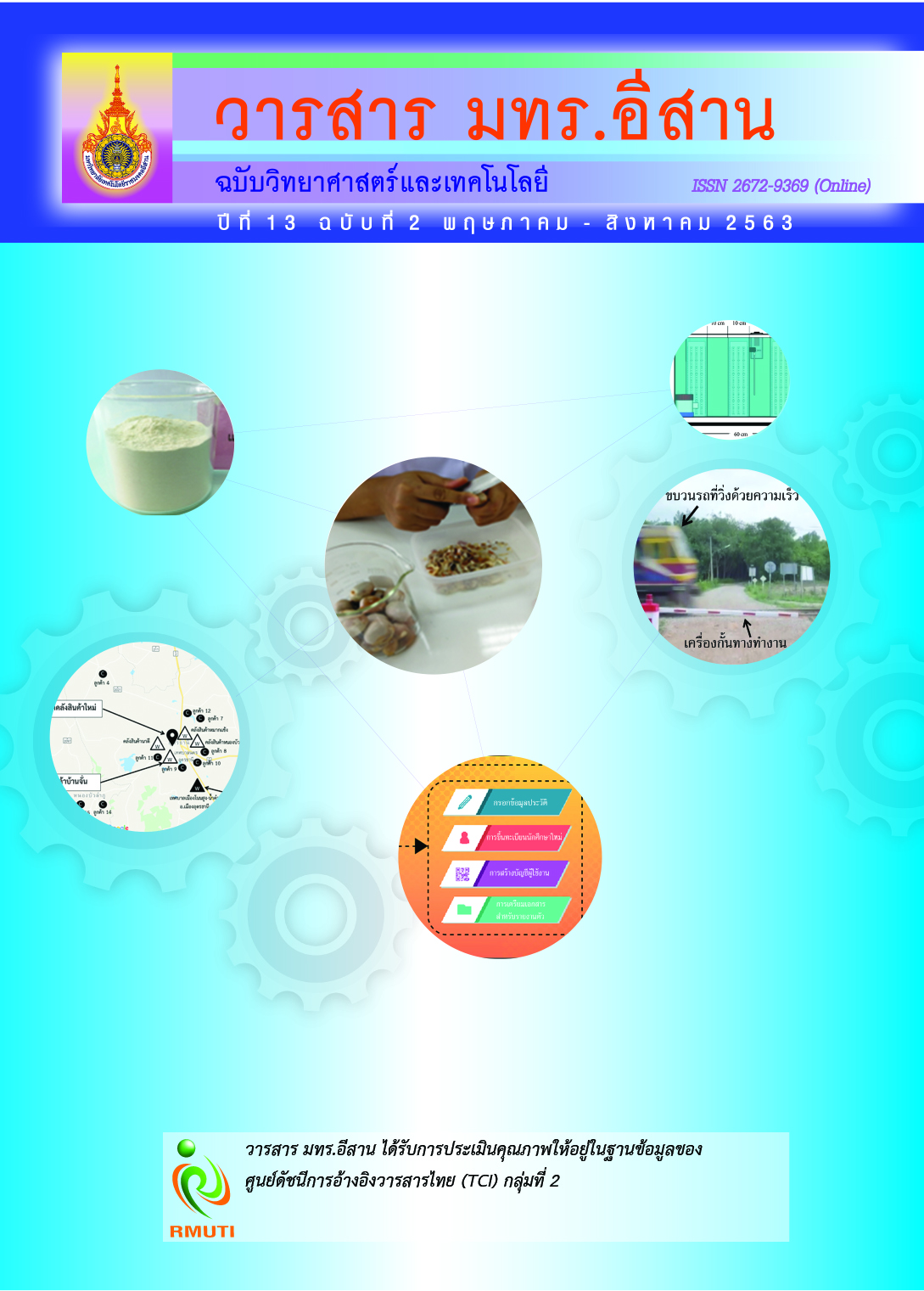Remote Islanding Detection Techniques of Anti-Islanding for Grid-Connected Distributed Generation
Main Article Content
Abstract
The research paper presents the details of remote techniques. Specifically, the paper presents a signal produced by disconnect technique to present the remote techniques. The simulation results show that the proposed technique could achieve a sudden anti-islanding condition and it is possible to use only one transmitter to cover a big part of the grid. The research results show that an over/under-voltage and under voltage shift islanding detection technique is suitable to use with a small distributed generation, in which the anti-islanding condition within 0.08 s is achieved.
Article Details
References
REN21. (2018). Renewables 2018 Global Status Report. Renewable Energy Policy Network for the 21st Century
IEEE Std. 1547. (2003). IEEE Standard for Interconnecting Distributed Resources with Electric Power Systems. SASB/SCC21 - SCC21 - Fuel Cells, Photovoltaics, Dispersed Generation, and Energy Storage
Yingram, M. (2013). Passive Islanding Detection Techniques of Anti-Islanding for Grid-Connected Distributed Generation. Ladkrabang Engineering Journal. Vol. 30, No. 3, pp. 19-24
Yingram, M. and Soonrat, S. (2017). Active Islanding Detection Techniques of Anti-Islanding for Grid-Connected Distributed Generation. RMUTI Journal Science and Technology. Vol. 10, No. 1, pp. 11-21
Yingram, M. (2014). Passive Islanding Detection Techniques of Anti-Islanding for Grid-Connected Distributed Generation on Matlab/Simulink. Research Report, Faculty of Arts and Science, Chaiyaphum Rajabhat University
Yingram, M. (2015). Over/Under-Voltage Islanding Detection Technique of Anti-Islanding for Grid-Connected Distributed Generation on Matlab/Simulink. Ladkrabang Engineering Journal. Vol. 32, No. 1, pp. 67-72
Yingram, M. (2015). Development of Anti-Islanding Detection Technique in Grid-Connected Distributed Generation on Computer Program. Research Report, Faculty of Arts and Science, Chaiyaphum Rajabhat University
Yingram, M. (2015). Active Islanding Detection Techniques of Anti-Islanding for Grid-Connected Distributed Generation: Part 1. Ladkrabang Engineering Journal. Vol. 33, No. 2, pp. 1-7
Yingram, M. (2015). Development of Anti-Islanding Hybrid Detection Technique in Grid-Connected Distributed Generation. Ph.D. Dissertation Chiang Mai University
Yingram, M. and Premrudeepreechacharn, S. (2015). Over/Undervoltage and Undervoltage Shift of Hybrid Islanding Detection Method of Distributed Generation. The Scientific World Journal. DOI: 10.1155/2015/654942
Kitamura, A., Okamoto, M., Yamamoto, F., Nakaji, K., Matsuda, H., and Hotta, K. (1994). Islanding Phenomenon Elimination Study at Rokko Test Center. United States: N
Velasco, D., Trujillo, C. L., Garcera, G., and Figueres, E. (2010). Review of Anti-Islanding Techniques in Distributed Generators. Renewable and Sustainable Energy Reviews. pp. 1608-1614
Hotta, K., Kitamura, A., Okamoto, M., Takigawa, K., Kobayashi, H., and Ariga, Y. (1993). Islanding Prevention Measures: Demonstration Testing at Rokko Test Center for Advanced Energy Systems. In Proceedings of the 23rd Annual IEEE Power Electronics Specialists Conference PESC, Spain. pp. 1063-1067
Yu, B., Matsui, M., and Yu, G. (2010). A Review of Current Anti-Islanding Methods for Photovoltaic Power System. Solar Energy. Vol. 84, Issue 5, pp. 745-754. DOI: 10.1016/j.solener.2010.01.018
Ropp, M., Aaker, K., Haigh, J., and Sabhah, N. (2000). Using Power Line Carrier Communications to Prevent Islanding. In Proceedings of the 28th IEEE Photovoltaic Specialist Conference. pp. 1675-1678. DOI: 10.1109/PVSC.2000.916224
Xu, W., Zhang, G., Li, C., Wang, W., Wang, G., and Kliber, J. (2007). A Power Line Signaling Based Technique for Anti-Islanding Protection of Distributed Generators-Part I: Scheme and Analysis. IEEE Transaction on Power Delivery. Vol. 22, No. 3, pp. 1758-1766. DOI: 10.1109/TPWRD.2007.899618
Funabashi, T., Koyanagi, K., and Yokoyama, R. (2003). A Review of Islanding Detection Methods for Distributed Resources. In 2003 IEEE Bologna PowerTech - Conference Proceedings. Vol. 2, pp. 608-613. DOI: 10.1109/PTC.2003.1304617


